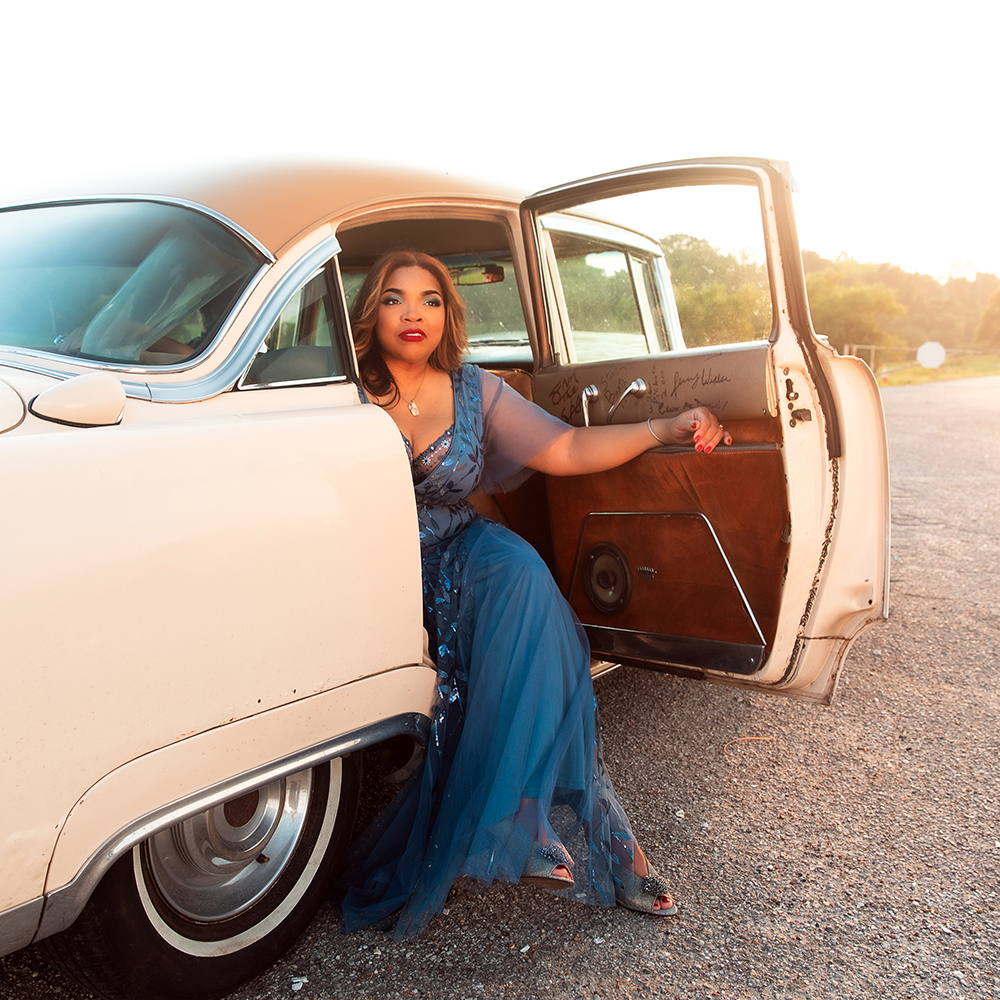Singer and composer Candice Ivory, “the Queen of Avant Soul,” sees many parallels between her life and that of blues legend Memphis Minnie. Both were profoundly shaped by Memphis, yet had to leave to find greater success in music. Indeed, Memphis Minnie was given her stage name in New York, by a Columbia Records A&R man. “I literally took her playbook,” says Ivory. “She moved to Chicago; I moved to St. Louis. And my aka is St. Louis Red, but I’m not from St. Louis.” For both singers, Memphis turned out to be more of a state of mind, one they left behind as they discovered their musical voice.
And both, it turns out, grew up steeped in the North Mississippi blues but expanded their musical horizons far beyond that. In Ivory’s case, at the encouragement of her great-uncle, famed bluesman Will Roy Sanders, she began performing professionally on Beale Street at 14. Four years later, winning Betty Carter’s Jazz Ahead residency at the Kennedy Center led her to voice and composition classes at the New School University in New York. By 21, she had made the first of three albums that were all jazz-informed but also rich with programmed beats and other neo-soul touches. That all changed this year, when Ivory brought her musical odyssey full circle on her fourth album, When the Levee Breaks: The Music of Memphis Minnie (Little Village/Side Hustle Records).
Yet even this “down home” album keeps things edgy. For one thing, it was produced by Charlie Hunter, who’s made a name for himself since the early ’90s as a genre-busting, funk-inspired jazz guitarist (and bassist) with a penchant for experimentation. At the same time, Hunter was determined to stay true to Memphis Minnie’s original genius on this tribute, studying her lead guitar parts from records cut between 1929 and 1959 with laser-like focus.
“Nobody really knows how much of a bluesman Charlie Hunter really is,” says Ivory. “No one considers him that, but that’s exactly who he is. We connected because he’d been working on a project about [Depression era bluesman] Blind Blake. He was eating, sleeping, and breathing Blind Blake. For this album, we both felt it also became a matter of technical proficiency because few people can actually play Memphis Minnie music to this day. I know some fantastic musicians who can’t do it.”
But there’s more to this tribute than doing the original guitar parts justice. For one thing, both Hunter and Ivory have made beat-making central to their past works, and that rhythmic focus endures in this collaboration. Here, “When the Levee Breaks” becomes a vocal chant accompanied only by Afro-Caribbean-flavored drums (and erstwhile Memphian George Sluppick behind the kit). The album’s opener, “Me and My Chauffeur,” recasts one of Memphis Minnie’s most popular tunes as a percussionist’s tour de force. When the guitar finally enters, it’s not Hunter but pedal steel virtuoso DaShawn Hickman.
“DaShawn is the third generation of his family to be inducted in the Sacred Steel Hall of Fame,” says Ivory. “He’s a big deal, and Charlie also produced a solo project for him on my label, Little Village Foundation. They are doing a PBS documentary on him right now.” Though bluesman Hunter is still all over the album, using pedal steel or Cuban Santeria drums reveals how much Ivory and her producer think outside the blues box. The way Ivory sees it, that’s par for the course. The blues and jazz status quo often doesn’t know how to categorize her.
“Charlie is a jazz rebel like me,” she says. “All of us seem to be blues outliers because we represent aspects of the tradition that have been rejected by the blues culture. But if I was going to approach something like this, it needed to be through my own lens — I don’t think Minnie would have appreciated a simple mimic. It’s more interesting to see how our voices amplify each other in a world where we are easily overlooked. It was liberating for her, as a woman, to be a blues singer, but it was so difficult to be a woman on a scene that is completely unfriendly to you. Absolutely no one cares what women in blues have to say. They care about guitars, but definitely not women, and definitely not Black women. In that way, Memphis Minnie’s almost like a Christ-like figure.”
